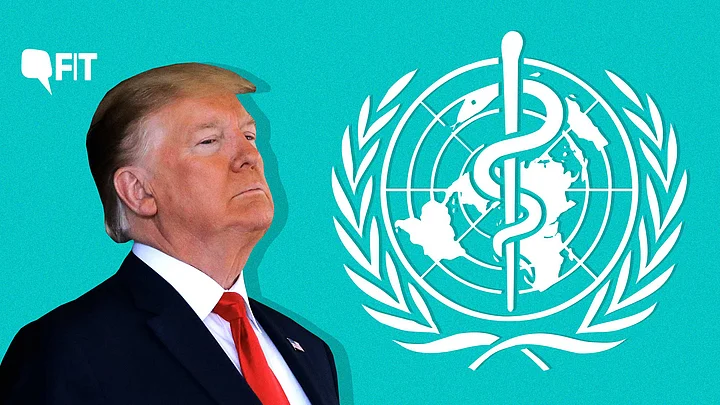The decision of US President Donald Trump to withdraw from the World Health Organisation (WHO) cuts off both financial and technical engagement of official American government agencies with the world’s leading public health agency. It is particularly damaging to a concerted global response to the COVID-19 pandemic, being coordinated by WHO. It is especially startling to India, as our Health Minister has just assumed office as chair of WHO’s Executive Board.
I must state for the record that I have served on several WHO expert committees since 1993 and continue to do so. These committees draw upon the technical strength of independent experts from across the world. I have stepped away from opportunities for employment in senior positions at WHO, because I felt committed to work in and for my country, even while supporting the work on global health issues as an independent expert. Though I did find some of the bureaucracy and inter-divisional politics at WHO irksome, I respected the technical expertise and dedication of many of the technical staff at WHO and admired the vast talent they could mobilise from all parts of the world for scientific deliberations.
WHO is an organisation of member states. Its priorities are set by the Executive Board and the General Assembly comprising country representatives. Several times, the agenda of the rich countries has shaped the priorities of WHO, both through their financial contributions and the technical experts they position within WHO. That said, the countervailing influence of the low and middle income countries should not be discounted. The General Assembly, where these countries have numerical majority and some degree of ideological coherence, is a forum where the priorities of the developing countries can be asserted and inserted into the work plan.
'Time to Reinvigorate WHO Through Needed Reform, Not Reject It'
The financial contributions of the rich countries and private foundations do give them an agenda shaping power in the choice of programme priorities. The response to that has to be to make WHO better funded through untied country contributions and ensure that private funding does not come with strings that divert the agency from its core mission.
The COVID-19 pandemic has highlighted the need for investing more in national and global public health systems. This is the time to reinvigorate WHO through needed reform, not reject it.
The reform should extend from the headquarters to the regional offices.
Despite the financial dependance on major government and private donors, the collective strength of WHO’s membership has often prevailed in setting the right course for global health. I was a member of the official Indian delegation to the international negotiations on the proposed Framework Convention for Tobacco Control (FCTC), during 2000-2003.
Despite fierce opposition by the US delegation appointed by the Bush administration, the grouping of developing countries succeeded in ensuring the adoption of a strong public health treaty. Similarly, WHO took a strong position on sugar sweetened beverages and junk foods. In comparison, the United Nations in New York has adopted a softer approach in engaging with such industries.
WHO has also given the call for Universal Health Coverage (UHC) and greater investment in Primary Health Care (PHC). Its normative functions involve defining and setting standards for various health indicators. Its technical reports not only bring together excellent technical expertise from around the world to appraise evidence but also take into account the contextual needs and challenges of developing countries and regional specificities.
Whether it is the framing of International Health Regulations or revising the International Classification of Diseases, WHO provides the platform for science based global consensus.
'To strike a blow against this global agency, in the midst of a pandemic, is a measure of political petulance'
India and other countries in the South East Asia Region (SEAR) have benefited from the technical expertise of WHO, whether in polio surveillance and eradication, maternal and child health, non -communicable diseases and mental health or newly emerging areas of environmental health and zoonotic infections. As global health threats call for a global thrust to counter them, shared vulnerability as well as shared values must strengthen global platforms such as WHO.
To strike a blow against this global agency, in the midst of a pandemic, is a measure of political petulance. There has been bipartisan criticism of this move in the US Congress. We can only hope that collective wisdom of the American public health community will prevail. Independent American experts can still contribute to WHO’s technical work. However, a financially weakened WHO may be forced to seek funding from other sources for survival. Some of those, whether government or private, may tilt the WHO’s agenda towards their priorities and seek to set the global health agenda to serve their interests. That will not bode well for the future of global public health.
(Prof. K. Srinath Reddy is President, Public Health Foundation of India. Views expressed are personal.)
(At The Quint, we question everything. Play an active role in shaping our journalism by becoming a member today.)
